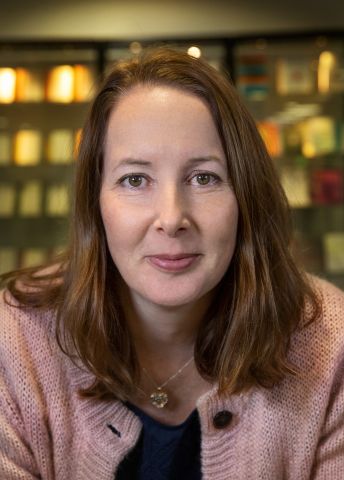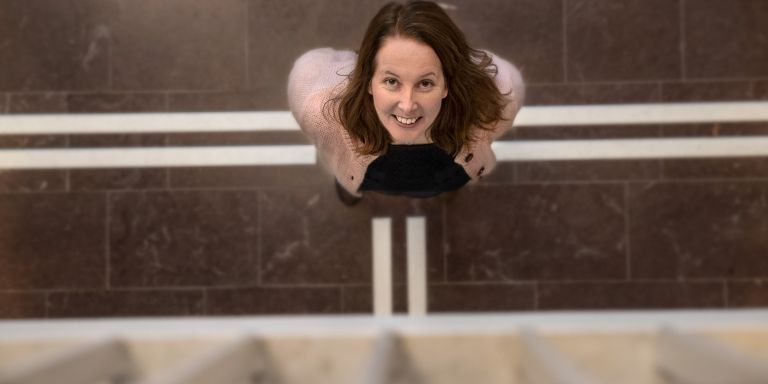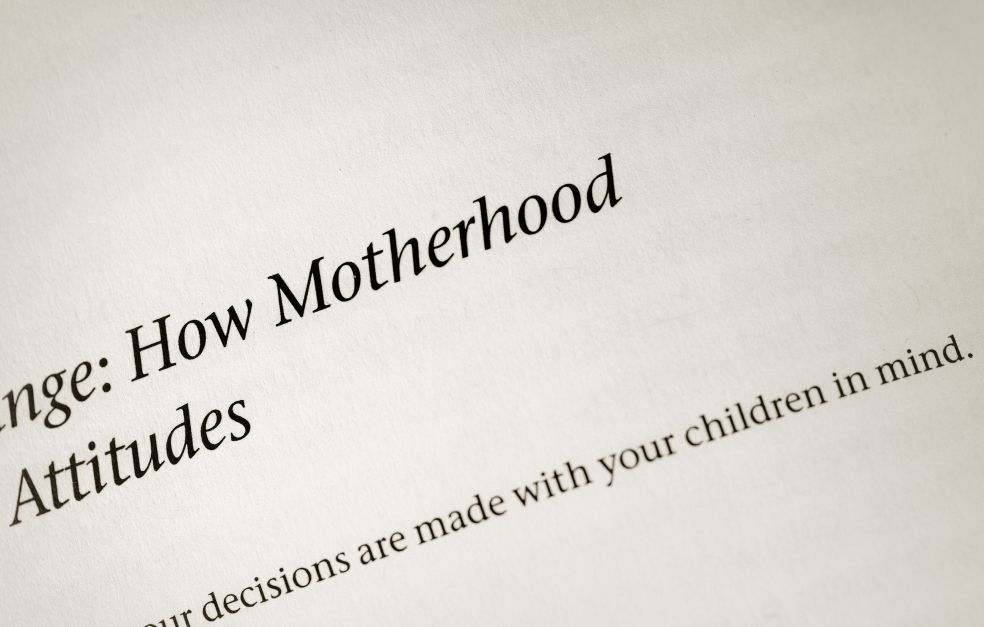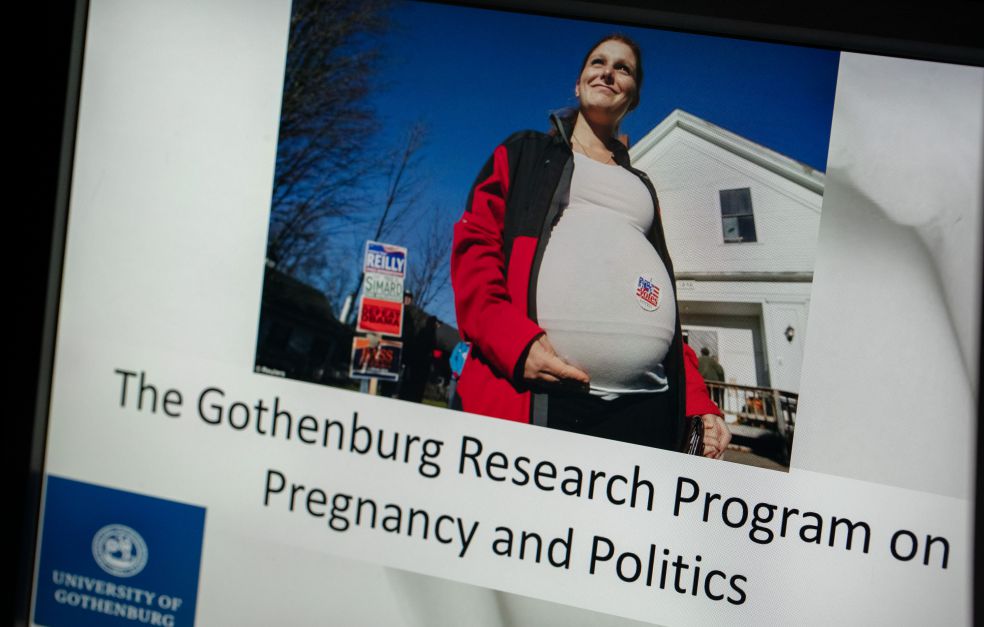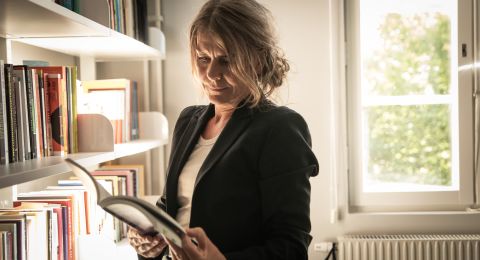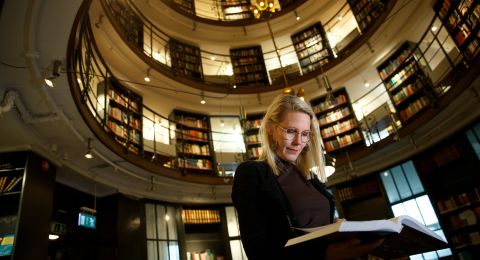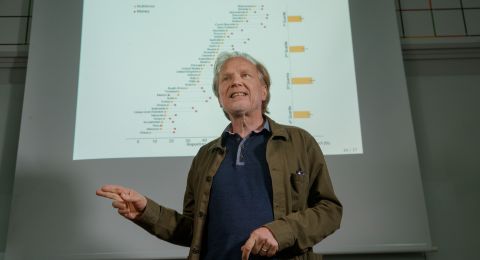Pregnancy, delivery and parenthood are tumultuous life events. Yet there has been no research into the ways this period of our lives changes our perceptions of political issues. Elin Naurin at the University of Gothenburg wants to change this state of affairs.
Elin Naurin
Professor of Political Science
Wallenberg Academy Fellow prolongation grant 2022
Institution:
University of Gothenburg
Research field:
Representative democracy and political behaviors.
One of the key purposes of political science is to help us understand how people perceive and engage in politics. But according to Elin Naurin, a Wallenberg Academy Fellow at the University of Gothenburg, there is a gap in this knowledge.
“Up to now we have not known how people are impacted by some of the truly central events of life: pregnancy, childbirth and the beginning of parenthood. These events have not been seen as political processes,” Naurin says.
She has decided to carry out surveys to determine whether this phase of life changes the way the pregnant woman and her partner view politics.
Research has already shown that women generally know less about politics than men. Political views also differ between the sexes; men and women participate in different ways and prioritize different issues. There are thus fundamental differences that are known but have not been fully explained.
Pregnancy and parenthood bring emotional changes, change social relationships, and create new needs for societal support. Naurin is convinced that all this has an impact, together with biological changes during pregnancy.
“Political scientists are becoming increasingly interested in biological factors. We know, for instance, that hormones play a major part in deciding whom we rely on.”
Comparing individuals over time
Earlier research compared parents with non-parents, but Naurin instead intends to compare individuals with themselves, and see how they evolve over time. An important source is the “Citizen Panel” (Medborgarpanelen) run by the SOM Institute, an independent survey research organization at the University of Gothenburg, which has been studying Swedish people’s attitudes and behavior since the 1980s. The Citizen Panel is composed of about 60,000 participants who regularly answer questionnaires on politics and society. They have joined the panel on their own initiative, so they do not represent a cross-section of the population. But they offer Naurin interesting opportunities to develop her research topics. As part of her project, participants are now periodically asked to say whether they or their partner are pregnant. She follows this up with some more specific questions to see whether the answers change.
Naurin concedes that she met with some skepticism when she first presented her idea. Other researchers thought that it was parenthood, rather than pregnancy, that affected political attitudes. But her preliminary findings appear to confirm her views.
“We have seen that women read or hear less political information already when they become pregnant. The average difference between the pregnant woman and her partner is 15 minutes per day. That represents one inside front page or radio news broadcast per day. This naturally impacts what they learn, and how they think about political issues,” Naurin says.
Collaborating with maternal health care
She cannot study biological factors with the help of the Citizen Panel. Instead, she is working with midwives and obstetricians at Sahlgrenska University Hospital. The hospital has a waiting room through which all pregnant women in Gothenburg pass on their way to their first ultrasound examination. Naurin works with midwives at the hospital to recruit women to the study.
“I feel genuine humility and pleasure in being able to put political science into practice in daily life in this way. The hospital is very much a public place, yet the individual and her personal situation really do occupy center stage. Here, it’s about life and death, joy and grief – and I ask them how they view society. It’s not always easy, but it’s really important.”
Since women are often accompanied by their partner when they go for an ultrasound examination, Naurin’s collaboration with Sahlgrenska also enables her to study couples, not merely individuals. She wants to relate changes in attitude and behavior to medical factors such as health, experience of childbirth, and the child’s health. To do this, she asks the women for permission to cross-check their questionnaire responses with the Pregnancy Register. This is a quality record for the health service, gathering data from medical records from hospitals and antenatal clinics, for all women who give their consent.
Looking for connections
Naurin hopes that her research will put pregnancy on the social science map, and social science on the maternal health care and obstetrics map. And she herself is curious about the answers.
“My friends claim that I’ve always said I want to be a researcher. I like the way that research poses questions and seeks to find answers, broadening horizons and making connections. I think this is how I live my own life. And I consider it a great privilege to really get to revel in these issues.”
“Being chosen as a Wallenberg Academy Fellow gives me security and a sense of trust. The work I am doing now addresses really difficult issues, and it’s wonderful that the Foundation has shown that it’s not afraid of failure. Here, science is taken seriously. It’s a great honor to be part of it. This award also helps me in my collaboration with health care professionals.”
Neither of Naurin’s parents are researchers. Her mother is a journalist; her father ran a number of small businesses.
“I was surrounded by curiosity in a trusting environment, where most things were considered interesting. It also made me something of an entrepreneur – which you need to be as a researcher. My mother worked freelance for a long time, so you might say I come from a family that needed to come up with good ideas and get others to fund them. And that’s very much what researchers do. You have to believe in yourself, and feel that you’re making a difference.”
Text Lisa Kirsebom
Translation Maxwell Arding
Photo Magnus Bergström
